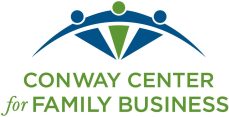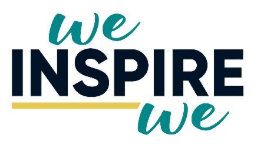We’ve all been there, especially in a family business: the lines between work and personal life blur, an overflowing inbox extends into weekend family gatherings, and business discussions seep into holidays. In the relentless pace of leadership within a family business, it can feel counterintuitive, even disloyal, to decline an opportunity or delegate a task, especially when it involves a loved one. Yet, what if the simple act of saying "no" was actually the key to unlocking greater effectiveness, fostering a more empowered team (both family and non-family), and ultimately, redefining your leadership within the family legacy? In this post, we'll explore the transformative power of establishing clear boundaries, not just for your own well-being, but for the growth, ownership, and long-term health of your entire family organization.
As senior and C-suite leaders in a family business, your time and attention are among your most valuable assets. Every “yes” to a new request or commitment is, by default, a “no” to something else. Often, that "something else" is the strategic thinking, the high-level vision casting, or the deep work that only you can truly do to drive the organization forward and ensure its multi-generational success. When leaders consistently overcommit, they inadvertently create a bottleneck, limiting their capacity to focus on value-added and strategic tasks. This isn't just about managing your own workload; it's about setting a precedent that cascades throughout the entire family enterprise, influencing both family and non-family employees.
Consider the ripple effect: when a family leader is unable to establish and honor their own boundaries, their team often mirrors this behavior. Family members might feel compelled to take on too much, hesitant to push back (especially against a senior family member), and ultimately, disempowered from taking true ownership of their work. Conversely, when leaders thoughtfully say "no" to tasks that can be handled by others, they are actively creating space for their team members—both inside and outside the family—to step up, develop new skills, and take on greater responsibility. This isn't about offloading; it's about empowering. It’s about fostering a culture where initiative is rewarded, and where every individual feels they have the agency to contribute meaningfully to the family legacy.
Boundaries aren't always rigid walls; they can be soft and porous, allowing for flexibility and collaboration, or hard and firm, providing clear delineation. The key is to consciously define them, communicate them effectively, and then honor them. This isn't a one-and-done exercise either, particularly in the dynamic environment of a family business where roles and relationships are constantly evolving. As leaders, we are continually growing, and so too should our boundaries. What served you well last year might be stifling growth now. Regularly assessing your boundaries ensures they remain aligned with your personal and professional development, and critically, with the evolving needs and developmental opportunities of your team.
When considering types of boundaries, especially in a family business, think about:
- Time Boundaries: When are you "on" for business and "off" for family or personal time? This might mean no business discussions at Sunday dinner, or setting clear expectations around after-hours communication.
- Role Boundaries: Clearly defining who is responsible for what, regardless of family hierarchy. This means distinguishing between the role of "parent" and "CEO," or "sibling" and "department head," and respecting those distinctions.
- Communication Boundaries: How and when do you discuss work matters? Is it appropriate for a family member to text you about a business issue at midnight, or should it wait until office hours?
- Emotional Boundaries: Learning to separate personal feelings and conflicts from business decisions. This is crucial in family businesses where personal relationships can easily influence professional judgment.
- Financial Boundaries: Clearly delineating personal and business finances to avoid confusion, resentment, and potential conflicts of interest.
Establishing and honoring boundaries, especially within the intricate dynamics of a family business, can be challenging but incredibly rewarding. If you find yourself grappling with where to start, or need support in navigating these crucial conversations, know that you don't have to do it alone.
In the Leadership Development Series, I just taught on "Building Boundaries: Say Yes to Saying No", and I've seen firsthand the transformative power of this work. I encourage you to think about your current leadership landscape within your family business.
- How are you honoring your own boundaries today?
- What are some boundaries—perhaps in the areas of time, role, communication, emotion, or finance—that you need to establish or reinforce to create more space for high-impact work and to protect the health of your family relationships?
- How might setting those boundaries empower your entire team to take greater ownership and truly flourish, ensuring a vibrant future for your family enterprise?
Tami Chapek, PCC
CEO and Founder | Executive Leadership Coach
WeInspireWe
If you are interested in topics that address leadership roles in your family-owned business, please join us at our Leadership Development monthly sessions that Tami facilitates. Contact Amy at adotts@familybusinesscenter if you have any questions about this group.
About the Author:
Tami Chapek is a passionate advocate for family businesses and a sought-after speaker and consultant on leadership development. With years of experience working alongside family-owned companies and major corporations, Tami understands the unique challenges and opportunities they face. She helps family business leaders define their authentic leadership style, build high-performing teams, and create a legacy that lasts. Tami believes that strong leadership is the key to unlocking the full potential of family businesses and ensuring their continued success for generations to come. She is committed to empowering family business leaders to embrace a "Leadership ReDEFYned" approach, fostering a culture of authenticity, efficacy, influence, and inspiration.


